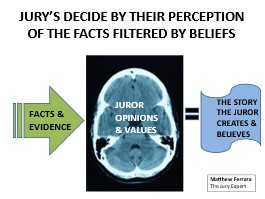THE SKILL OF LISTENING & THE MYTH ABOUT HUMAN LOGIC
The Skill of Listening
A recent journal of the American College of Trial Lawyers published an article about Kate Murphy, author of the Book You’re Not Listening, lawyers in trial need to know their audience by listing to go with their little understanding is that issues that concern. They need to know how to craft a message that appeals to the other person so you can respond accordingly. Listening is an important skill.
One of the things discussed is what she calls “the shift response.” By that she refers to a conversation when someone says something, and you respond that shifts the conversation back to you. One example is a person says: “I lost my job last week.” A shift response would be: “I have dog who gets out that was lost too.” On the other hand, a, “support response” would: “You must’ve been in agony. How did you finally find your dog?” Before you respond with something about your experience or not indirect spots, you need to first develop more information about their experience.
The author says that what makes you likable is really listening. It develops a sense of hospitality and openness. She cites the important of Linguist Paul Grice’s four conversational expectations:
Grice’s Maxims
- The maxim of quantity, where one tries to be as informative as one possibly can, and gives as much information as is needed, and no more.
- The maxim of quality, where one tries to be truthful, and does not give information that is false or that is not supported by evidence.
- The maxim of relation, where one tries to be relevant, and says things that are pertinent to the discussion.
- The maxim of manner, when one tries to be as clear, as brief, and as orderly as one can in what one says, and where one avoids obscurity and ambiguity.
she says that if we don’t meet these expectations the other person is going to turn off.
The Myth About Human Reasoning
Another article from the journal of the American College of Trial Lawyers was about the prosecution of the men who were charged with the murder of a young African American man while jogging in Brunswick Georgia in February 2020. The article pointed out that in light of the extensive amount of pretrial publicity questionnaires were used to gauge the interest bias of potential jurors to the case. A five-question strategy regarding possible bias was developed.
The questions were:
- Can you put your opinion aside (because you got it from news media, and you haven’t even heard the evidence in this case)?
- Can’t you decide this case on the evidence that the state is going to present within these four walls?
- Are you willing to hold the state to its burden to prove its case to you beyond a reasonable doubt?
- Are you willing to follow the law that the judge gives you?
- Are you willing to give meaningful consideration to the defense of self-defense and citizen’s arrest?
The article pointed out that most potential jurors favorite the state’s case were able to answer the first four questions in the affirmative, but many were disqualified from the jury on the fifth question because they stated they could not meaningfully and truthfully consider the issue of self-defense.
The problem with these questions is that they assume human beings have the capacity to (1) determine whether or not they have a bias or the ability to be fair minded and (2) have the ability to control either if they were aware of them. Neuroscience has clearly established those human beings do not have the ability to accurately measure whether they possess a bias or the extent of that bias. Furthermore, it has been established those human beings do not have the ability to inoculate themselves from the influence of bias and strongly held beliefs that they hold. That is true no matter how sincerely and honestly, they try to do so.

In addition, science has also established that the great majority of decisions are made in the subconscious mind and are not subject to control by the conscious mind. While we may believe that we are logical people who will intellectually analyze the situation before arriving at a rational decision, that is not what neuroscience has established. While we will offer some attempt at a rational explanation for our decisions they are not, in fact, the way in which they were made. That’s because they were made at the subconscious level beyond our control.
These five questions may appear to relevant and appropriate, but one cannot rely on the accuracy of sponsors received from potential jurors. While these questions may be answered and even answered sincerely, they’re not reliable.